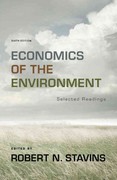Question
Multiple choice questions: 1. Why is the Import substituting industrialisation considered as too costly trade policy and fail to promote economic development 1 point a.
Multiple choice questions:
1. Why is the Import substituting industrialisation considered as too costly trade policy and fail to promote economic development
1 point
a. It involved complex, time-consuming regulations
b. It set high tariff rates for consumers, including firms that needed to buy imported inputs for their products
c. It promoted inefficiently small industries
d. All are correct
2. This is not the effect of the tariff
1 point
a. The quantity of exports rises
b. The quantity of imports falls
c. The price of a good will tend to fall in the foreign market
d. The price of a good will tend to rise in the domestic market
3. AC = F(n/S) + c. Because trade increases market size, trade is predicted to
1 point
a. decrease average cost in an industry described by monopolistic competition
b. consumers can benefit from a decreased price because average cost fall
c. increases the welfare of consumers
d. all are correct
4. Multinational corporations undertake foreign direct investment because
1 point
a. locating production in foreign countries is efficient
b. internalizing technology transfers is efficient
c. vertical integration is efficient
d. all are correct
5. The effects of a tariff in a small country
1 point
a. the foreign price will fall
b. the price in the domestic market will rise less than the rate of tariff
c. the import volumes will rise
d. the price in the domestic market will rise same as the rate of tariff
6. An agreement that allows free trade among members and requires a common external trade policy towards non-member countries.
1 point
a. Free trade area
b. Most favoured nation
c. Custom union
d. Preferential Trading Agreement
7. This is the most suitable figure of trade liberalization since mid 1980s
1 point
a. to strengthen the previous import substitution industrialisation policy
b. relatively lower effective rate of protection policy
c. improve the income inequality in low dan middle income countries
d. unambiguously promote economic development of low and middle income countries
8. Preferential trading agreements increase national welfare when
1 point
a. a trade diversion exceeds trade creation
b. an efficiency loss exceeds terms of trade gain
c. a terms of trade gain exceeds efficiency loss
d. a trade creation exceeds trade diversion
9. Real wages across countries are far from equal (factor price equalisation) due to
1 point
a. the fact that countries do not produce the same goods
b. differences in technology
c. immigration barriers
d. all are correct
10. International borrowing and lending can be described as intertemporal trade
1 point
a. borrow now and lend later
b. countries with profitable investment opportunities borrow funds today and repay lenders in the future, benefiting both borrowers and lenders
c. invest now and consume later
d. countries with profitable investment opportunities lends funds today and receive interest in the future, benefiting both borrowers and lenders
Step by Step Solution
There are 3 Steps involved in it
Step: 1

Get Instant Access to Expert-Tailored Solutions
See step-by-step solutions with expert insights and AI powered tools for academic success
Step: 2

Step: 3

Ace Your Homework with AI
Get the answers you need in no time with our AI-driven, step-by-step assistance
Get Started


